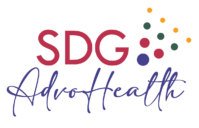The 2024 Medicare Physician Fee Schedule surely checks the box for being patient-centered. Starting this year, Medicare will start paying health care practitioners for taking the time to train family caregivers so that Medicare enrollees can appropriately follow their treatment plan.
Training family caregivers to care for older patients at home—be it medication management or doing household chores—reduced the likelihood of acute care utilization. This is particularly relevant after older patients are discharged and have to continue their recovery at home: 20% of older adults are readmitted to the hospital within 30 days of discharge. Family caregivers, who may already be juggling their work and family life, may feel overwhelmed with the added responsibility of caring for a recovering older parent. Providing them with appropriate resources and training can help reduce their burden and also lead to improved health outcomes for the patients.
The second important part of the announcement is that patient navigation services will now be reimbursed—namely, care navigation for patients with high-risk diseases including cancer.

The importance of cancer navigators cannot be overstated, not just for those who are newly diagnosed but also for those who have been under treatment for a while. With the time that a navigator invests in a patient and their family members (a systematic review of 61 studies conducted over a decade identified this to be anywhere between 5 minutes to 3 hours), they are able to personalize the support that a patient needs. They can assist patients and their families with:
-
- Practical needs (such as transportation, lodging, finances, interpretation)
-
- Physical needs (such as dealing with side effects, need for hair wigs, referrals for home/palliative/hospice care)
-
- Social and emotional needs (referrals for counseling, stressed relationships, dealing with changes in appearance)
While alleviating the stress felt by patients and their family members, studies have shown that integrating navigators in a cancer program helped retain patients within the program and also helped prevent hospitalizations and visits to the emergency room. With navigators filling in, physicians reported on reduced administrative burden (such as ensuring patients are seeing the right specialists in a timely manner), that in turn lowered physician burnout and errors.

This is fantastic news!